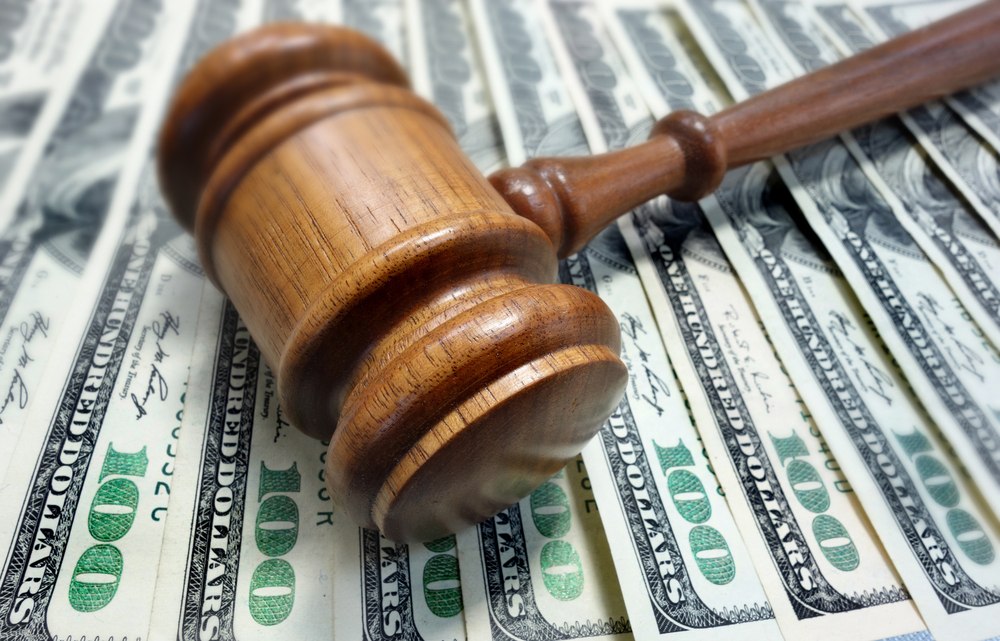It’s out: the annual report by tort reform advocates of what they say are the nation’s worst local courts and states that are abusing the civil justice system.
The report also warns of state courts that did not make the list of the worst this year but may be on track to do so in the near future.
This year’s Top 10 Judicial Hellholes are “filled with widespread civil lawsuits, legislative loopholes that create more ways for lawyers to sue, and judges who allow junk science into evidence in trials,” according to the American Tort Reform Foundation.
The ATRF organization advocates for civil justice reforms including limits on the award of noneconomic damages, limits on contingent fees paid to attorneys, class action reforms, and appeal bond reform among others. Members of the group include businesses, municipalities and professional and trade associations. The group is often on the other side of these issues from the plaintiffs’ trial bar.
“Justice is abused in these Judicial Hellholes, with abuses in the civil justice system hurting businesses, consumers and the nation,” said Tiger Joyce, ATRF president. “Litigation abuse drives up insurance costs and drives away jobs, and the money businesses spend fighting often-frivolous lawsuits takes dollars away from research and development of new consumer products.”
The 2019-20 Judicial Hellholes report ranks Philadelphia’s Court of Common Pleas as the No. 1 Judicial Hellhole in the country, due to the large number of mass torts cases inundating this court system and the high-dollar judgments and settlements that result. For example, in October, Johnson & Johnson was hit with an $8 billion verdict involving the medication, Risperdal, which reportedly is the largest verdict from the court in 25 years. (A judge has since reduced that award to $6.8 million.)
The report claims that trial lawyers “spend millions of dollars on advertising in the Philadelphia media market to drive up the number of claimants.”
The group says this court also has “opened its door to plaintiffs from all over the country” such that 86 percent of the new pharmaceutical suits in Philadelphia are brought by out-of-state plaintiffs.
Philadelphia beat out California’s state courts and legislature as the top hellhole, a title California held last year. But California’s drop to number 2 is not due to any improvement in the state’s liability climate, according to the report, but rather results from the “severity of the new problems plaguing Philadelphia.”
New York City, ranked third, is criticized for too many consumer lawsuits and disability act claims against small businesses.
Louisiana climbed to number 4 because of the current governor’s “aggressive litigation agenda, the plaintiff-friendly legislature, and inescapable advertising practices by the plaintiffs’ bar.”
St. Louis improved its standing with tort reforms in 2005 but is back on the list at number 5 due to it “becoming known for permitting lawyers to combine multiple plaintiffs, sometimes from different states, in toxic tort and pharmaceutical cases.
The 2019-2020 top Judicial Hellholes are:
- Philadelphia Court of Common Pleas
- California
- New York City
- Louisiana
- St. Louis
- Georgia
- Illinois’s Cook, Madison and St. Clair Counties
- Oklahoma
- Minnesota Supreme Court and the Twin Cities
- New Jersey Legislature
“Our hope is that this report on Judicial Hellholes will be a loud wake-up call for government officials to stop the madness,” Joyce said. “Stop creating more ways for lawyers to sue businesses, stop wasting money in court, and stop contributing to job loss.”
The report also spotlights additional courts and states that it says bear watching due to troubling developments: the Colorado Supreme Court, Florida, Maryland Legislature, Montana Supreme Court, Pennsylvania Supreme Court, South Carolina Asbestos Litigation and West Virginia Supreme Court.
“These locations are on the cusp of becoming full-blown Judicial Hellholes,” Joyce said.
The report also identifies what it sees as several worrisome areas emerging in civil litigation including an increase in local governments filing local lawsuits to address national public policy issues, legislation seeking to ban arbitration and new data privacy liability concerns.
Also, in 2019, laws expanding employment liability were enacted in states across the country, including four bills in California, Illinois, New Jersey and New York which seek to ban arbitration in the employment context.
The report also says that California’s Consumer Protection Act and Illinois’s Biometric Information Privacy Act are contributing to a “regulatory patchwork of data privacy laws” in the U.S. These lawsuits are “becoming more prevalent and are imposing significant costs on legitimate businesses offering useful services — all without enhancing consumer privacy,” the group contends.
“National and global problems cannot be solved through litigation in local courts,” Joyce said.
Was this article valuable?
Here are more articles you may enjoy.


 Berkshire Utility Presses Wildfire Appeal With Billions at Stake
Berkshire Utility Presses Wildfire Appeal With Billions at Stake  Why 2026 Is The Tipping Point for The Evolving Role of AI in Law and Claims
Why 2026 Is The Tipping Point for The Evolving Role of AI in Law and Claims  Cape Cod Faces Highest Snow Risk as New Coastal Storm Forms
Cape Cod Faces Highest Snow Risk as New Coastal Storm Forms  Founder of Auto Parts Maker Charged With Fraud That Wiped Out Billions
Founder of Auto Parts Maker Charged With Fraud That Wiped Out Billions 